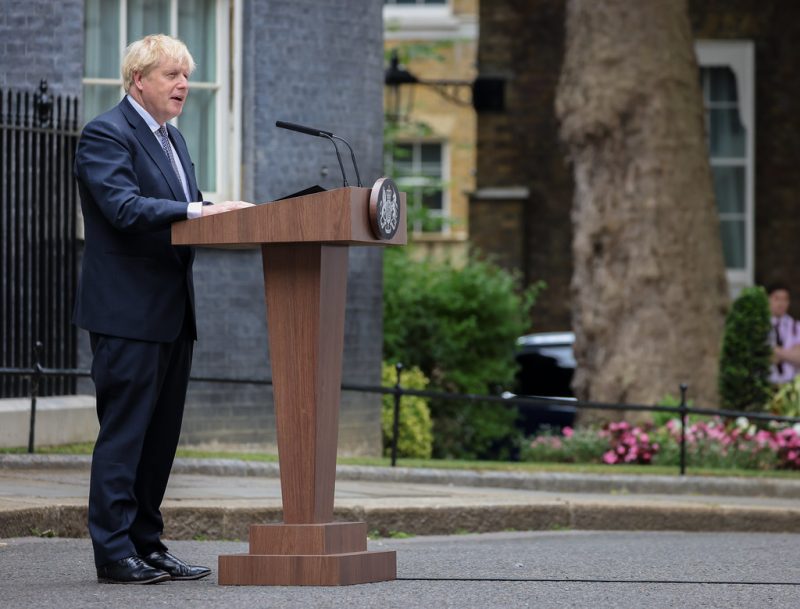 Ever since they joined with the Conservatives to form a coalition government last May, the public reputation of the Liberal Democrats has suffered greatly. Ahead of their autumn conference, David Hall-Matthews argues that the party needs to push its achievements and distinctiveness within the coalition as well as moving to democratise policy debates.
Ever since they joined with the Conservatives to form a coalition government last May, the public reputation of the Liberal Democrats has suffered greatly. Ahead of their autumn conference, David Hall-Matthews argues that the party needs to push its achievements and distinctiveness within the coalition as well as moving to democratise policy debates.
They say you should never meet your heroes. So it proved, at an academic conference late last year, when I found myself sitting opposite Bill Clinton’s former Treasury Adviser Joe Stiglitz. Before I could open my mouth I was introduced to him – as a Liberal Democrat. He did not beat around the bush.
“What the hell are you guys doing?” he exclaimed. “All I see is you propping up the bad guys. How are you going to make it look good for you?” What hurt most was that he is a card-carrying Liberal. And a Democrat. I had to say something sensible, fast. So I asked for his advice.
“What your man Clegg should have done, as soon as he was in office, is make a speech saying what the Lib Dems hope to achieve in office. Nothing too specific. Three or four areas where you hope to make a distinctive difference. Then you could stop people going on about you helping the Tories. Challenge them to judge you on your own agenda. Keep telling them what you’re there for. And make sure you achieve some of it.”
But, wait, we did tell the nation what we aimed to do last year. In the manifesto. And there’s our succinct four point plan, shining like a beacon in the Coalition Agreement: Pupil Premium – done; Income Tax threshold rise – done, in part; Green Investment Bank – on the way; New Politics – aye, there’s the rub. Constitutional Reform has not gone all that well to date. Being the least sleazy doesn’t get you very far either, when we’re not whiter than white. And it is hard not to sound like a prig, saying ‘I told you so’ having warned about dodgy relationships with News International for years.
Nonetheless, New Politics is the line we have to push. What we need to articulate is nothing less than what difference Lib Dem presence makes to government itself; a Liberal Democrat narrative for better governance, built on our strengths – above all, our internal democracy. If we start saying more clearly now why voters should be glad that we are there – and what they can expect as a result – then we will have built up a more convincing platform from which to fight the next election.
What do we have to offer?
What are the three or four differences of approach that make us distinct from the others? Nick Clegg put a lot of emphasis on them during the election campaign, with considerable success: not being beholden to unelected power; being better in touch with people on the street; keen to make changes so that the whole political system is more transparent, accountable and responsive. So it is one of the biggest mysteries of the last sixteen months: why have Liberal Democrats failed to capitalise on New Politics?
What we need to show is how we are serious about challenging over-concentrations of power, instead of just whinging about them. Recently, events have started to help, rather than conspire against us. The extent to which Tories and Labour courted the Murdochs – and the extent to which we refused to, for years – do us credit. The revelation that Nick Clegg had been one of only two voices in Downing Street persistently warning David Cameron not to employ Andy Coulson (the other was Steve Hilton) made me proud of him. But is was also frustrating that he had never said so in public at the time.
Was I alone in thinking that December’s sting against Vince Cable, though it harmed him personally (and, initially, helped the Murdochs), made the party look good? For almost the first time since the election, here was a Liberal Democrat minister saying things that were both sensible and radical; popular and uniquely liberal. Nick Clegg was pilloried for condemning ‘scratch my back and I’ll scratch yours’ internships, having benefited from one himself. But that was down to a fairly small piece of naive communication. He should have started with ‘I had one and it was wrong’, not waited till a Labour backbencher challenged him. But he was right. It was a strong, brave Lib Dem message. He must not be once bitten, twice shy. We remain the third party. We still have to fight harder to be heard, and repeat our more challenging messages long and loud. Coalition is to some extent an opportunity, but it is also in some ways an obstacle.
Part of the problem is of course that party strategists have, quite wrongly, decided that we cannot be too publically at odds with the Conservatives. But even if we did accept the need to be responsible in supporting every aspect of government policy to the hilt (which I do not), surely we should still take every opportunity to publicise our fundamental ideological differences. It has become self-evident that voters do not much like coalitions that look like sell-outs.
There is no evidence that voters will oppose collaboration between two distinct and different parties, who are confident enough to air their differences, then agree a reasoned compromise – and, sometimes, still disagree. British voters have simply never seen that. In New Zealand, after ten messy years of various shades of coalition, there is now a formal protocol whereby the minority party can state on which parts of the government programme it ‘agrees to disagree.’ If we could introduce something similar here in the next year or two, it could only help our electoral chances. At the moment, pragmatism has left us hamstrung. Ambitious, radical, liberal ideas – to constrain the political power of the media, for example – have been rejected from Lib Dem policy proposals as ‘impractical.’ Now that we are in a corner, we need to come out fighting.
Expanding our democracy
So here’s a suggestion, we could democratise policy-making. Part of the current malaise of British politics is the rise of cross-party consensus, often at odds with what the public thinks. Provocative though it was, Julian Astle’s claim that this reflects the dominance of all parties by “Liberal alchemists” held some water, if by ‘Liberal’ he meant ‘Orange Book reformist’, which he did.
The Labour left and Tory right would like to change this by re-radicalising politics, resorting to populism – and stoking public anger. The Liberal Democrats’ ideological response and historical tradition could see us trying to harness public creativity. Why not try to replicate internal policy structures, from local meetings up? Not just top-down consultation but bottom-up ideas. Public debates before key policy decisions are made. It would take a lot of work, but could Liberal Democrats change the relationships between ministers, backbenchers, councillors and voters when it comes to policy deliberation? If we can start to bridge the gap between government and the people, that would be a distinctive legacy to be proud of, whatever our fate in 2015.
Yet, at the moment, there is no sign of that happening. Autumn conference this year has fewer debates (relative to speeches and Q&A sessions) than ever before. Cowley Street is more concerned to give junior ministers the chance to make government policy announcements (which should be saved for parliament) than let the party determine party policy. With discontent still raging over the revised NHS reforms – and despite the kudos the party has gained thanks to the passage of a transformative amendment in Sheffield – a debate over what Liberal Democrats should insist on in the final Health and Social Care Bill has been spurned by Conference Committee in favour of a Health Q&A that can change nothing (though watch this space). Nor is it only conference delegates whose opportunity to be heard is threatened. Our backbenchers are too rarely consulted before Liberal Democrat ministers agree policy with Conservatives. Even when the policy agreed is outside the Coalition Agreement or, heaven forbid, inconsistent with Liberal Democrat policy passed by conference.
With the Cowley Street Policy Research Unit virtually disbanded, what is the system now for developing independent party policy? The parliamentary committees of backbenchers and peers are a good innovation, though some see their role as merely to support the relevant ministers. Meeting for an hour a week without support staff, there are huge limits to what they can do anyway. The party needs mechanisms for ordinary members to feed in to them. Democracy is in our DNA. It should be our unique selling point, at the heart of our narrative for government. Compromise is fine in most people’s eyes if you do it from a position of strength. Yet we are at risk of compromising on our source of strength; of giving up on what we hold most dear; and our ability to compromise itself.
Please read our comments policy before posting.
This article first appeared in The Liberator.







